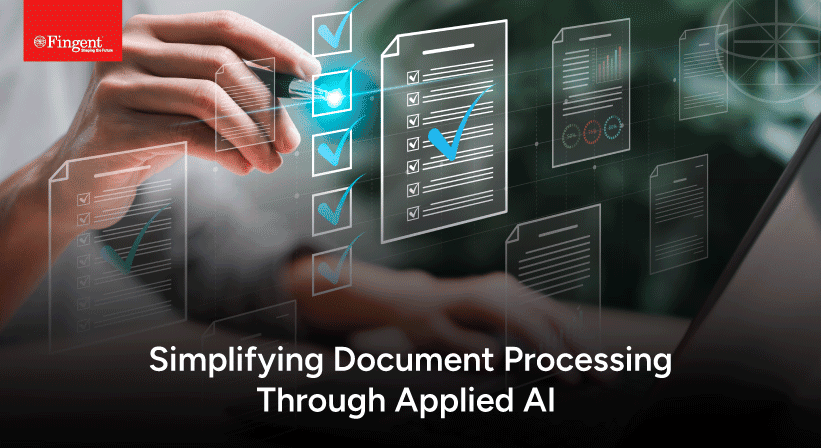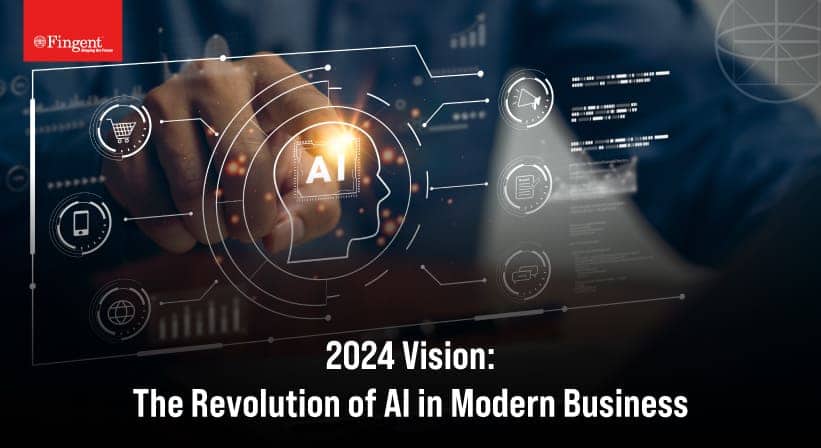Conversational AI: Reimagining Customer Experiences
Warning: in_array() expects parameter 2 to be array, null given in /home/www/fingenttest/public/wp-content/themes/fingent/template-parts/content.php on line 37
Warning: in_array() expects parameter 2 to be array, null given in /home/www/fingenttest/public/wp-content/themes/fingent/template-parts/content.php on line 81
Language gives power. Using NLP (Natural Language Processing), conversational AI gives businesses the power to stay on top of the game.
Why can we say that?
Today, digital-first marketing is a growing trend and conversation is the defining element of a digital-first customer experience.
Is your mind racing with questions like what is Conversational AI? How does it work? What are its benefits? Can my business benefit from Conversational AI?
Well, this article answers each of those questions. By the end of this article, you will understand all you need to know about conversational AI.
What Is Conversational AI
Conversational AI is a subset of Artificial Intelligence. It uses Machine Learning (ML), Natural Language Processing (NLP), neural networks, and speech recognition technologies to mimic human conversation. Conversational AI can empower businesses to automate highly personalized customer service resolutions at scale. This makes the customer’s experience unique and relevant while reducing the effort and resolution time of the company. As a result, you have happy customers who stay loyal to your brand.
Conversational AI is becoming one of the most popular technologies. The global conversational AI market size is expected to grow at a CAGR (Compound Annual Growth Rate) of 21.8% by 2026.
This unique technology is used to engage customers in services such as support, marketing, helping a prospect enter a funnel, and even sales. Conversational AI will make brands more human and help engage with customers more personally.
The most common use of conversation AI experience is through voice assistants. This allows brands to participate in direct and uninterrupted conversations at scale.
Read more: Capitalizing on AI Chatbots Will Redefine Your Business: Here’s How!
How Does It Work?
As mentioned earlier, NLP is one component that enables conversational AI. It is an umbrella term that includes NLU (Natural Language Understanding) and NLG (Natural Language Generation).
Human language is complex. People can say the same thing in many different ways. However, a computer can decipher customers’ intent with the help of natural language understanding technology. It looks at the context of what a customer said to accurately understand what a person needs. Leveraging NLU can enable conversational AI to understand grammatical mistakes, abbreviations, slang, and misspellings just like a human would.
Once it understands what a customer wants, ML is used to determine the appropriate response. Over time, conversational AI learns which response is the best and improves its accuracy.
Finally, NLG creates an easy-to-understand reply that’s as human-like as possible. Advanced conversational AI can use contextual awareness to remember bits of information to facilitate more natural conversation.
How Does Conversational AI Benefit Different Industries?
Conversational AI technology has substantial benefits for businesses across industries. Here are the most important benefits:
1. More engaging and easy interactions
Reading dry FAQs can be boring and may drive your potential customers to your competition. On the other hand, having the choice to take part in a conversation can be more engaging and has the potential to convert your leads.
Because conversational AI can use past interaction history or other relevant data, it can personalize each customer interaction. It spares the customer the trouble of searching through multiple pages to find answers to his questions.
2. Higher customer satisfaction
Conversational AI allows industries such as healthcare and hospitality to provide real-time information to their end-users. AI-powered chatbots can be accessed more readily than live support. Such quick support helps avoid long waiting times improving customer experience. Improved customer satisfaction can impact customer loyalty and referrals.
Read more: 5 Leading Chatbot Use Cases Explained with Real-life Examples
3. Greater support with minimum cost
Customer care costs have a high impact benefit on finance industries. Conversational AI can help keep customer care expenditures in check. It can improve overall efficiency and productivity by handling routine issues much faster. These bots can also reduce customer support tickets.
They can deflect the number of routine tickets sent to human agents and boost team productivity. Chatbot templates can be used to collect information and help resolve clients’ queries faster. AI-powered bots provide relevant information faster and boost the accuracy rate over time. They can learn from past interactions and continuously evolve.
4. Improved lead generation
Lead generation is the foremost goal of sales and marketing teams in industries such as insurance. Virtual assistants can engage visitors who browse the site and improve lead generation.
5. Increased operational and customer support efficiency
Conversational AI can come to the rescue when a business experiences a sudden rise in the volume of chats. Plus, these chatbots are cheaper and faster than hiring new agents. With automated operations, businesses can focus on other important functions.
Additionally, conversational AI can determine a customer’s emotional needs and communication preferences from previous interactions. Hence, deploying a conversational chatbot is a wise decision during the holiday season.
6. Increased reach
Conversational AI enables your brand to reach a wider audience as it can understand both verbal and written speech. For example, you can reach elderly and hearing or vision impaired customers who find it difficult to navigate the web.
7. Boost revenue
Conversational AI can considerably reduce website costs. When properly implemented, a conversational AI chatbot provides live support and assistance 24/7. They can qualify leads by asking predefined sales queries to nurture the lead.
Once the lead fills a form or signs up for a newsletter, the chatbot can analyze the text of the lead and find the most appropriate response. This is especially useful for banking services and increases their revenue.
Conversational AI chatbots can quickly act on positive user intent and present a service or product that meets their preferences.
Use Cases
1. eCommerce
Conversational AI helps businesses form customer relationships that last and ultimately sell more products. It can help in cross-selling and upselling products, finding specific products, and placing orders. It can also answer FAQs, make suggestions about the size, and even help with returns.
2. Banking
Conversational AI can be used to provide a simplified and intuitive customer experience. It can facilitate transactions, help with account services, and assist customers to apply for loans.
Among the best use cases of banking are helping find a nearby ATM, assisting with mobile deposits, and sending billing reminders and notifications.
3. Insurance
Conversational AI can help distribute products, resolve claims, and increase customer awareness and education. It can also manage renewals, and gather customer feedback and reviews.
4. Healthcare
In many ways, conversational AI can make things easier for patients, doctors, nurses, and other healthcare staff.
It can improve operational efficiency by answering common health questions, booking appointments, and checking up on patients. It can even escalate emergency cases.
Read more: MUSA: Fingent’s AI-powered Virtual Assistant Helps Employees With HR & DevOps Queries
Quick Resolutions, Seamless Conversations
Today, customers expect a quick resolution and seamless conversations when interacting with your business. Conversational AI will assuredly provide personalized assistants that both serve and predict customer needs.
There is no doubt that conversational AI will continue to evolve into a sophisticated technology. Given that, your organization needs to clearly understand what conversational AI is so you can leverage it and build customer experience around it.
Give us a call, get your business set up with Conversational AI, and get set to reap the rewards.
Stay up to date on what's new

Recommended Posts

18 Apr 2024 B2B
Applied AI For Document Processing
"It's becoming increasingly clear that AI is the future, and almost everything else is a sideshow." - World-renowned computer scientist Geoff Hinton AI has taken over almost every aspect of……

10 Jan 2024 B2B
AI Trends Set to Transform Businesses in 2024
In the dynamic realm of modern business, the profound impact of artificial intelligence (AI) continues to unfold, reshaping industries and redefining conventional practices. As we step into 2024, the transformative……

26 Nov 2023 B2B
Finding Success in the Aviation Business with AI
“Aviation is the branch of engineering that is least forgiving of mistakes.” - Freeman Dyson, British-American theoretical physicist and mathematician. The truth in that statement is sobering indeed. The precision……

27 Oct 2023 B2B
Generative AI – Magnifying the Power of AI in Business
Are you sick and tired of performing the same monotonous task every day? Well, if your answer is yes, then Generative Artificial Intelligence can benefit you. Technology is evolving at……
Featured Blogs
Stay up to date on
what's new













